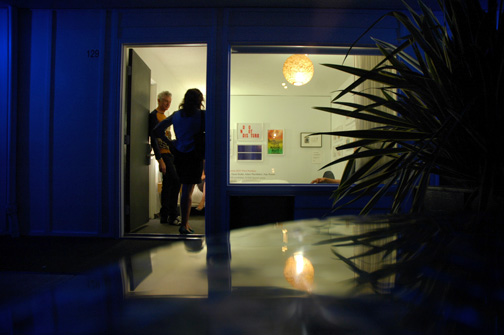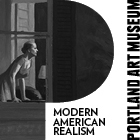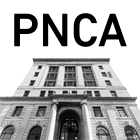
|
||
|
Portland art blog + news + exhibition reviews + galleries + contemporary northwest art
|
||
Affair at the Jupiter Hotel, RIP  White Columns @ Affair at the Jupiter Hotel 2007, Photo by Sarah Henderson Well, everybody on the inside of the Portland art scene has known for months that there wasn't going to be an Affair at the Jupiter Hotel Art Fair in 2008. I could have pressed the organizers on this but hoped it might be given over to other hands. Now it is officially over. Most dealers were upset with 2007, which seemed to be an afterthought compared to 2006 and many key players simply weren't going to do it again unless it was managed differently and possibly at a different venue. Most everybody felt that the event needed to be taken to another level rather than allowed to coast on prior momentum. Promotionally 2007's fair seemed neglected side project (though the art improved in 2007)and I know of some great galleries that wanted to take part (and would have raised the game) but simply hadn't been followed up on. I disagree with the analysis that other fairs created too much pressure. To be sure that pressure is real, but one had to be willing to make the Portland event stand out, instead it became a junior NADA art fair even as the NADA fair itself was becoming more serious. To step up and differentiate takes time, funding and incentives and it was obvious both Stuart and Laurel simply had other babies to burp. Portland could put together something even better if we want to. How about something with a stronger exhibition and nonprofit presence? Make it an anti-artfair art fair focused on more equally focused on networking rather than mere sales? Posted by Jeff Jahn on February 18, 2008 at 18:19 | Comments (12) Comments I can only speak for myself but I would like to say that I was not unhappy with the Affair last year. In fact, although it was a bit quieter, I found the audience to be much more savvy and engaged than the lookie-loos of years past. It is my humble opinion that Portland loves to look at art but seems unwilling to pay for it. Between the PICA scale backs of a few years ago, PAC's recent closure and the end of the Affair, Portland should be getting the message that art doesn't fund itself. When the spectacle of the fair wore off and the A&E crowd lost interest, the focus shifted from social event to genuine art fair and at that point, it became embarrassingly obvious that Portland has a dearth of patrons. There are, without a doubt, a few very active and fiscally supportive individuals but these can be counted on one, maybe two, hands and can in no way be expected to fund an entire city's galleries and institutions. Posted by: jenn I dont mean this as a slight on Stuart and Laurel's abilities, only that the promotion of the event last year did irk many gallerists. Of Course I dont discount your account Jenn. Still this "irkdom" isnt new information either, the WWeek reported this right after the event and I'm relaying this from good sources. When I look back there were galleries and collectors here (from outside Portland) for the 2005 event that were not present in 2006 and 2007 (we did have a museum wing opening in 2005). 2006 had a huge party atmosphere that the organizers rightly or wrongly sought to simmer down last year. (I think it was partly a good thing). Portland is readjusting itself... instead of one single event or institution type thinking it is moving to multiple events and institutions because things have expanded. Festivalism is done, gargantuan spaceism without savvy is done. Consolidation is done, multifacteted is in. The Affair always needed something else to stand on (like an exhibition to create draw) and though the TBA pair up made some sense the performance art crowd and the art collector crowds are pretty diffferent.. it didnt work. It's true that there arent that many serious collectors (I know of about 25-50 depending on how you count them), but there are some new ones. Also, weve seen a steady expansion of collectors from elsewhere that more than makes up for it. Some are now moving here, a new sea change is afoot. So no its not that glum... in fact a shift towards more serious efforts is underway. Portland has been built on a series of unfortunate false starts, Savage, Haze, (PICA's space could have been saved), Motel, PAC, Affair but things continue to move along after each one fades... but you are right there needs to be real investment... and not just money (that's partly a red herring it isnt the panacea). Instead, expertise and targeted efforts, not getting ahead of ourselves is key. Im seeing the key mix on a marketing , business, money, political, location and expertise level for the first time since Ive lived here (nearly 9 years). PNCA, PAM, PSU and the U of O, AiA etc. are all getting their acts together. We even have more good alt spaces than ever before... I think people have dialed into more realistic courses of action. People will usually work like dogs for 5 years then try something else... there is a new wave in town. The class of 2002-2003 has made way for the class of 2007-2008. The best of each class stick around and build on eachother. Posted by: Double J I hear a lot of commentary on how Portland doesn't support the arts and that hardly anyone buys art here and I don't see this. Just in this past year I have been to a number of shows at various galleries and I've noticed there are alot of red dots and sold pieces of these shows. Posted by: Charles Thanks... good point, things have been selling! Quality over quanity any day, it's the only sound strategy. Posted by: Double J Alas, seems my comment morphed into a bit too much quantity. Posted by: Charles Yes it all boils down to money no matter how you want to slice it. Nobody made their expectation, and so they question the validity of it all. The biggest hurdle this cities art scene has to clear is the poor collector base. There needs to be a huge emphases on finding more money, and introducing them to collecting. The 25-50 who already collect, are in,no need to worry about them. But, what about the other 1.5 mill who randomly take in first thursdays and fridays, solely for the entertainment value? Also, sure things are selling, but hardly at the price point or quantity that gives artist's a stable income above the poverty line. Ultimately I think that there is a huge image problem, for the art scene, in the eye's of the monied .This probably has a lot to do with the politics of this city. Posted by: bnoodle I dont think there is an image problem between the money and the art scene... good artists sell just fine. But the money will not support people that know less about art than they do. It is that simple. Also expecting artists to be making a living wage from their art is a historically untenable expectation... even in London York or New York. In other words it does not simply boil down to money. Instead, its about having realistic expectations and using them as a platform for further activity.... the trajectory of one's followthrough defines how an activity is regarded. Portland is a rebel base, many artists sell some here then sell some more in Chicago, LA and New York. The art world is an extremely international, even in Portland. Posted by: Double J I for one know about international sales vs local, on several levels. A reasonable expectation is that Portlanders would support work at the same price point, as your three big cities, do. Then we might look at getting a big chunk to build a Contemporary art center or what have you. Posted by: bnoodle Only a small # of artists ever make a living at art in any city (and then there are boom and bust times). Many who do make a living at it pander to their clientel.. that isnt a value judgement, just a part of the business. Artists that are remembered in the history books seldom have careers that can always be counted on, unless of course they die young. Also, an art center's funding isnt too closely tied to prices paid for local artists (many of whom get non Portland prices aready because they how outside of town)... instead that's a patronage issue and Portland has already proven it can raise large dollars. Like any decent sized city one simply has to ask the right questions with the right people involved and things will happen (if it doesnt that means something). Getting free rent to simply show your freinds wont bring vast donations either. Portland's biggest problem is many dont know the score and that leads to false expectations. Posted by: Double J Yes, my favorite artistic paradigm/quandary/urban hippster 20 something myth- To sell out or not to sell out? May every artist I know or have seen or heard, alive, be faced with such a predicament. And for my full circle devil's advocation, it's all about the money, and money is nothing more than exchange of energy. Art history supports this at every turn, from the king to the pope to the wealthy industrialist. Art that is part of history is as much there for it's artistic achievement as it is , because the patron or family members worked to maintain the importance of the artist after death. Then follow the scholars. Posted by: bnoodle It isnt that crass... even Eli Broad is interested in artists that push him with new ideas. The history books are process driven not outcome driven... otherwise all the hack artists who have wealthy parents would end up in the history books. Instead the books favor the poor and the slightly well to do artists with a lot of talent and more pluck. The thing is... it really only ends with the money (and then it becomes irrelevant as it enters a museum collection and in theory loses its commodity status)... but the thing is Portland is not in an end game situation at all its very young... ok adolescent. We have some similariries to new York in the 40's... sure there is money here but the fact that the conspicuous consumption levels here havn't reduced all art making to mere money making is one of our strengths. Making art with little expectation for riches isnt just a hipster dream... it is an age old historical trope that proves how art history is important. Over the last 100 years or so the saliency of art has often thrived on its obscurity. Later, when the work is sold for a premium it can safely navigate the money minefield and end up in a museum but that can happen years after the work was created in relative obscurity. By "relative" I mean that the artist still can have serious patrons and sell their work for $2500-12,000... but they arent making a killing to a point where their success overshadows the work. Of course all this is a digression... I can say that the reason the affair is being dropped has very little to do with whether it was meeting people's sales expectations. Personal time and energy are essential to the alchemical workings of the art world which turn lead into gold. I suspect the available time and energy reserves were simply low (and it showed last year). Dont be too surprised if there is an improved art fair this year. The conversation about who would put it on started last October. All it takes is dedicated people with connections, and there are lots of those in Portland. Posted by: Double J I can't help be think that you are putting the cart before the horse. Putting a weatlhy patron forward as the path to artistic immortality is beyond bizarre. Historically, at least over the last 200 years, most of the time critics, patrons, and dealers do get it wrong, especially when it is art that is being produced in their present moment. The work of late Turner, Cezanne, Gaugain and Van Gogh would all be examples of the present generation being unable to identify what future generations would be able to view as valuable. Pollock and De Kooning were constantly out of money when they were alive. I guess in terms of wealthy patron, it would have to be Newman's wife that supported both of them on a school teacher's salary for twenty years. Most art work appreciates after the artist dead. Case in point would be Judd's work. Maybe it is that the artist's are too difficult to deal with while they are alive. The Renaissance was the probably the last time that a wealthy patron might have been effective in choosing the artists that would have a lasting impact. I think that this because everybdoy was more or less doing the same thing, along religious lines, it made it easier to distinguish who was doing innovative work. Also before you get to someone like Da Vinci, Raphael, and Michelangelo , you have to remember that they where working along a line of thought that had been developing for the better part of two hundred years. Last, in a little bit of Reniassance refresher, both Da Vinci and Michelangelo live to see Florence invaded during their life time. Michelangelo lives in a basement for four (?) years and Leonardo flees to France. That does not seem like the path to sustainable artistic immortality to me. Posted by: Arcy Post a comment Thanks for signing in, . Now you can comment. (sign out)
(If you haven't left a comment here before, you may need to be approved by
the site owner before your comment will appear. Until then, it won't appear
on the entry. Thanks for waiting.)
|
| s p o n s o r s |
 |
 |
 |
 |
 |
 |
 |
 |
 |
 |
 |
 |
 |
 |
 |
 |

|
Site Design: Jennifer Armbrust | • | Site Development: Philippe Blanc & Katherine Bovee | |


![[TypeKey Profile Page]](http://www.portlandart.net/nav-commenters.gif)